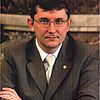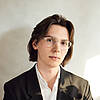Director of the Legislative Process Research Center:
Prof. Dr. Paweł Chmielnicki
Head of the Department of Legal Theory and Material Legal Sources
Research team:

Dr. Przemysław Buczkowski
Dr. Dobrochna Minich
Vice dean for educational quality
Dr. Bartłomiej Opaliński
Plenipotentiary of the Dean of the Faculty of Law and Administration for legal applications
Ewelina Gee-Milan, M.A.
Director of Students' Legal Clinic at Lazarski University
Karol Strzała, MA
Deputy Director of Management and Finance and Accounting programs
Research projects
- 25 years of implementation of the Constitution's norms through laws. Research report.
download document (pdf) - Response of the Polish legislature to the SARS-CoV-2 pandemic. Final research report.
download document (pdf)
MisTheresearchteam ofthe Legislative Process Research Center aims to expand the traditional approach to the study of law with new elements that enable empirical understanding of the causes of the creation of legal norms (material sources of law) and the socio-economic effects of their functioning.
We conduct interdisciplinary research in the proper sense. We use a common and unique research methodology, in which the result depends on close cooperation between people representing various scientific and professional specialties. We strive to create a common inference based on a unified intellectual plane. We analyze the interrelationship between the norms of law and the other rules, norms and institutions belonging to the country's contemporary socio-economic order.
The Center's research is intended to lead to the ordering and modernization of knowledge about the goals of human action - as a social being. We are looking for ways to achieve these goals with the help of legal institutions and non-legal norms, in particular on the rationale and ways of exerting pressure on the course of legislative proceedings by individuals and interest groups. In other words, we learn about the rules and norms of axionormative order in all the complexity of the phenomenon, not only from the side of formalized elements (legal norms), but also from the side of non-formalized elements (informal rules, norms and institutions).
We want to ask questions that most often do not have an easy answer, but we decide to take the trouble of breaking stereotypes and getting to the essence of the law-making process in correlation with the processes of its application. This is because we see a gap in the existing scientific paradigm, which significantly weakens the potential of the social sciences.
Subject matter
In addition to the so-called formal sources of law, there are material sources of law, which are the totality of social, economic and cultural premises that affect the content of the law. Within the legal sciences, the issue of the material sources of law is raised sporadically, on the basis of free divagations devoid of empirical foundation, and research efforts are disordered and dispersed among various cognitive directions, such as the theory and philosophy of law, the dogmatics of individual branches, the sociology of law, etc. Meanwhile, what is law if not a record of the content of the rules for achieving the goals of action, set by man, a social being? Reflection on the problem of the cognitive gap occurring in the legal sciences provokes the formulation of new goals for the study of law and the asking of questions that require a scientific answer:
- Why not study the system of law as part of a larger whole, as part of a stock of formal and informal institutions that determine the course of interactions within a particular socio-economic system?
- Why not study the problem of the material sources of law and its functions in an integrated way, aggregating knowledge about the rules for achieving the goals of action accumulated within the framework of various social sciences, such as economic science (especially institutional economics, but also management and organizational science), sociology (especially the sociology of social change), psychology, political science, etc.?
- Why not take the trouble to determine the nature of the links between the main categories of formalized (especially legally) and non-formalized rules? Why not try to determine what is the mutual extent and - suppressive or reinforcing - power of the interplay of rules serving different purposes of action defined by people?
- Why not try to identify and catalog all the rules of action that are treated as valid in a particular society that exists today?
- Strategic goal: To know the system of rules of actionin a complete way.
How to know the system of rules of action in a complete way?
- By associating knowledge relating to the determination of the content of the rules of action, aggregated within the framework of various cognitive undertakings (interdisciplinary projects);
- In particular, by determining:
the types of benefits (tangible and intangible) that accrue from the dissemination and protection, in a given collective, of a particular rule of action, and the types of entities that receive these benefits;
the types of burdens (costs, annoyances - tangible and intangible) that are associated with the dissemination and protection, in a given collectivity, a specific rule of action and the types of entities that are burdened by these costs;
by determining the types of behavior directed at achieving the goal of the action (obtaining benefits or avoiding ailments).
What are the benefits of the scientific approach implemented within the framework of the Legislative Process Research Center?
- Social sciences - will gain a cognitive tool to integrate research endeavors;
- Legislative policy and economic policy - will gain a stronger scientific basis;
- Dogmatic disciplines of legal sciences - will gain a broadening and "realisation" of considerations about the origin and real content of various types of metadirectives (such as "subjective rights", "constitutional standards", "principles" of a branch of law, etc.).
The results of research relating to the cognitive goals of the Legislative Process Research Center were presented in publications by its staff. Among them can be mentioned:
- Paweł Chmielnicki "Creation of economic institutions and Polish legislation" Wolters Kluwer Publishers, Warsaw 2015, pp. 391
- Paweł Chmielnicki, Anna Dybała, Michał Stachura "Activity rules of economic man in society as the source of legal norms" Wyd. LexisNexis Warsaw 2010, pp. 294
- Anna Ząbkowicz, Maciej Miszewski, Paweł Chmielnicki, Slawomir Czech (ed.), "Understanding capitalism. An evolutionary and institutional approach", Wyd . Humanitas Sosnowiec -Kraków 2018, pp. 331
- Paweł Chmielnicki (ed.), Tomasz Bąkowski, Paweł Chmielnicki, Dorota Dąbek, Elżbieta Inglot - Brzęk, Jerzy Jaskiernia, Hubert Kaczmarczyk, Anna Kociołek - Pęksa, Andrzej Korybski, Marek Mączyński, Jerzy Menkes, Marcin Menkes, Jerzy Paśnik, Stefan Płażek, Elżbieta Sękowska - Grodzicka, Piotr Stec, Igor Styn, Piotr Uziębło "Origin, Creation and Effectiveness of Law" , Wyd. 1, LexisNexis Publishing House Warsaw 2014, pp. 485
- Paweł Chmielnicki "Reduction of transaction costs and barriers to entry as a typical tendency of the Polish legislature in the long-term perspective. Contribution to considerations on the genesis of business cycles" (pp. 245-264) [in:] "Theoretical and practical dimension of the new institutional economics",( collective work edited by Stanislaw Rudolf) Publisher WSEPiNM Kielce 2015
- Paweł Chmielnicki "Identification of goals and functions as a result of reconstruction of the scheme of action involving legally formalized solutions" (pp. 193-206) [in:] "Philosophical and theoretical issues of the democratic state of law",( collective work edited by M. Andruszkiewicz, A. Breczko, S. Oliwniak) Wyd. Temida 2 Białystok 2015
- Paweł Chmielnicki "Relations between formal and informal elements of the axionormative order in an empirical approach" (pp. 11-32) [in:] "External and internal integration of legal sciences" (collective work edited by M. Król, A. Bartczak, M. Zalewska), Wyd. Uniw. Łódzkiego, Łódź 2014
- Paweł Chmielnicki "Sources of the rules of axionormative order of a modern democratic state in the light of statistical studies of Polish legislation" (pp. 89-113) [in:] "O źródłach państwa i władzy politycznej" (collective work edited by A. Wielomski and C. Kalita), Warsaw 2011, pp. 324
- Paweł Chmielnicki "Correlation Between Long-Term Trends in the Economy and the Law-Making Process " (pp. 45-66) [in:] "Polish Yearbook of Law & Economics" (collective work edited by J. Bełdowski, K. Metelska-Szaniawska and L. Visscher), C.H.Beck Publishers, Warsaw 2011
- Paweł Chmielnicki "Reduction of entrepreneurial risk as the purpose of legislative initiatives: research results" [co-authors: Elżbieta Inglot - Brzęk, Igor Styn] Public Law Studies No. 1/2016
- Paweł Chmielnicki "Identification of goals and functions in the framework of legal interpretation" Public Law Review No. 3/2015, pp. 9-23
- Pawel Chmielnicki "The Research Method of "Association for the Research on Sources and Functions of Law" Public Law Review No. 3/2015, pp. 95-105
- Pawel Chmielnicki "The Universal Method of Assessing the Effects of Legal Regulations" Public Law Review No. 7-8/2013, pp. 160 - 171
- Paweł Chmielnicki "Socio - economic premises of legislative initiatives in 2008 - 2011" Public Law Review No. 12/2012, pp. 82 - 96
- Paweł Chmielnicki "Conspectus of research on the sources of law." Public Law Review No. 11/2012, pp. 84-96
- Paweł Chmielnicki "Methodology of research on substantive sources of law. Part 2. Justification and explanation of the various phases of research." Public Law Review No. 4/2012, pp. 72-101
- Pawel Chmielnicki "Methodology of research on material sources of law. Part 1. basics" Public Law Review No. 3/2012, pp. 90-101
Lazarski University
Świeradowska Str. 43
02-662 Warsaw
Room F614










